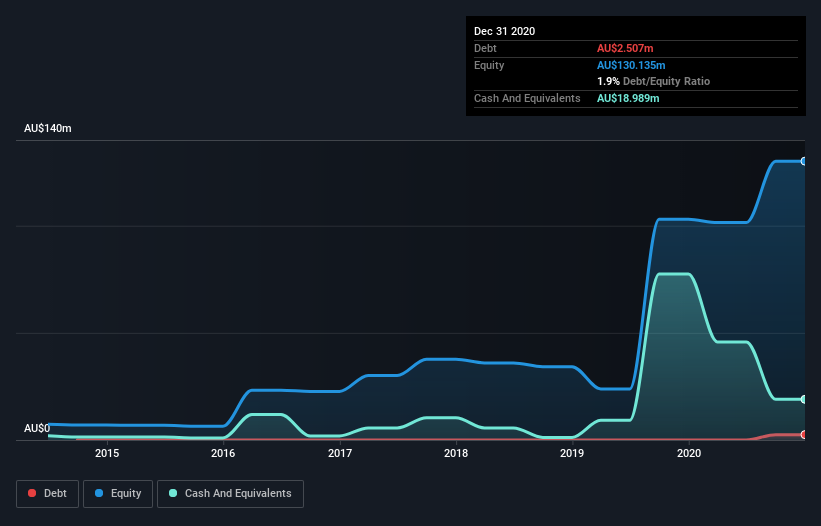Is Capricorn Metals (ASX:CMM) A Risky Investment?
Some say volatility, rather than debt, is the best way to think about risk as an investor, but Warren Buffett famously said that 'Volatility is far from synonymous with risk.' So it might be obvious that you need to consider debt, when you think about how risky any given stock is, because too much debt can sink a company. Importantly, Capricorn Metals Ltd (ASX:CMM) does carry debt. But the real question is whether this debt is making the company risky.
Why Does Debt Bring Risk?
Debt and other liabilities become risky for a business when it cannot easily fulfill those obligations, either with free cash flow or by raising capital at an attractive price. Ultimately, if the company can't fulfill its legal obligations to repay debt, shareholders could walk away with nothing. However, a more frequent (but still costly) occurrence is where a company must issue shares at bargain-basement prices, permanently diluting shareholders, just to shore up its balance sheet. Of course, the upside of debt is that it often represents cheap capital, especially when it replaces dilution in a company with the ability to reinvest at high rates of return. The first step when considering a company's debt levels is to consider its cash and debt together.
View our latest analysis for Capricorn Metals
What Is Capricorn Metals's Debt?
You can click the graphic below for the historical numbers, but it shows that as of December 2020 Capricorn Metals had AU$2.51m of debt, an increase on none, over one year. However, it does have AU$19.0m in cash offsetting this, leading to net cash of AU$16.5m.
How Healthy Is Capricorn Metals' Balance Sheet?
According to the last reported balance sheet, Capricorn Metals had liabilities of AU$14.3m due within 12 months, and liabilities of AU$14.1m due beyond 12 months. Offsetting these obligations, it had cash of AU$19.0m as well as receivables valued at AU$1.64m due within 12 months. So its liabilities outweigh the sum of its cash and (near-term) receivables by AU$7.85m.
Having regard to Capricorn Metals' size, it seems that its liquid assets are well balanced with its total liabilities. So it's very unlikely that the AU$666.8m company is short on cash, but still worth keeping an eye on the balance sheet. Despite its noteworthy liabilities, Capricorn Metals boasts net cash, so it's fair to say it does not have a heavy debt load! There's no doubt that we learn most about debt from the balance sheet. But ultimately the future profitability of the business will decide if Capricorn Metals can strengthen its balance sheet over time. So if you want to see what the professionals think, you might find this free report on analyst profit forecasts to be interesting.
Given its lack of meaningful operating revenue, investors are probably hoping that Capricorn Metals finds some valuable resources, before it runs out of money.
So How Risky Is Capricorn Metals?
We have no doubt that loss making companies are, in general, riskier than profitable ones. And the fact is that over the last twelve months Capricorn Metals lost money at the earnings before interest and tax (EBIT) line. And over the same period it saw negative free cash outflow of AU$93m and booked a AU$8.1m accounting loss. While this does make the company a bit risky, it's important to remember it has net cash of AU$16.5m. That kitty means the company can keep spending for growth for at least two years, at current rates. Capricorn Metals's revenue growth shone bright over the last year, so it may well be in a position to turn a profit in due course. Pre-profit companies are often risky, but they can also offer great rewards. When analysing debt levels, the balance sheet is the obvious place to start. However, not all investment risk resides within the balance sheet - far from it. Be aware that Capricorn Metals is showing 4 warning signs in our investment analysis , and 2 of those are a bit unpleasant...
Of course, if you're the type of investor who prefers buying stocks without the burden of debt, then don't hesitate to discover our exclusive list of net cash growth stocks, today.
This article by Simply Wall St is general in nature. It does not constitute a recommendation to buy or sell any stock, and does not take account of your objectives, or your financial situation. We aim to bring you long-term focused analysis driven by fundamental data. Note that our analysis may not factor in the latest price-sensitive company announcements or qualitative material. Simply Wall St has no position in any stocks mentioned.
Have feedback on this article? Concerned about the content? Get in touch with us directly. Alternatively, email editorial-team (at) simplywallst.com.

 Yahoo Finance
Yahoo Finance 
